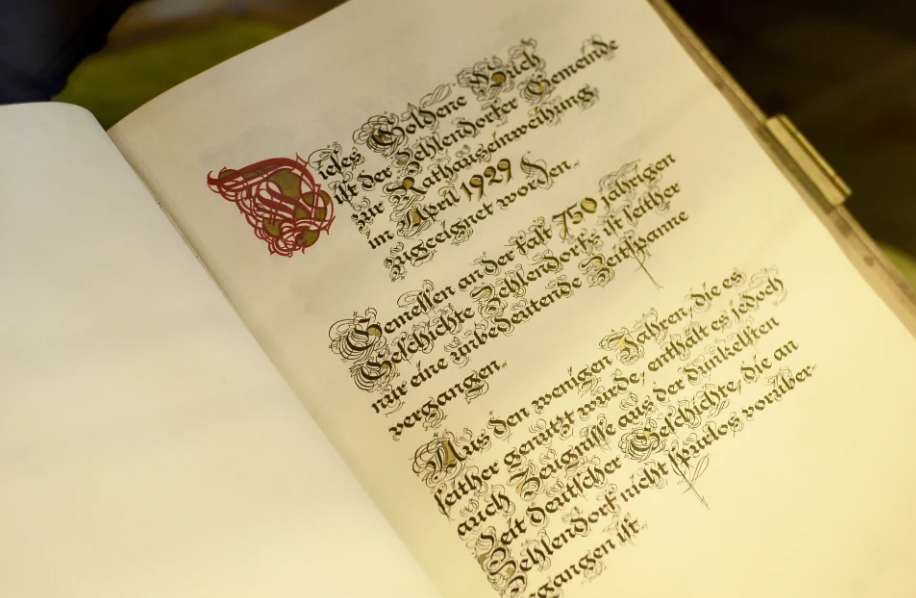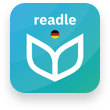
Learning German with short stories is one of the most effective ways to increase your vocabulary and rapidly master grammar, as well as put your knowledge into practice. Moreover, stories in German for beginners can expand your awareness of the world and of German culture.
But how exactly does that work, and what can you do to get the best experience for learning with German short stories in the best way? Read on to learn more.
Why Should You Learn German With Short Stories?
Regardless of your current level of expertise, learning German through short stories has multiple advantages.
- They’re brief. Short stories are suitable because, unlike novels and longer texts, they can often be read in one sitting. Because of the directness and accessibility of language used in many German short stories, your reading comprehension can dramatically increase.
- They are both inspiring and real. Short stories bring real-life language to life in meaningful ways, and their cultural and emotional influence extends well beyond the acquisition of grammar structures and vocabulary. The cultural component can also act as a powerful motivator to continue learning German.
- They teach you slang and vocabulary. In powerful short stories for beginners, some of the more vibrant aspects of the German language, such as usage, slang, and common phrases, can also come alive. German stories that concentrate on particular subjects and locations perform well as vocabulary units since they introduce interesting words and phrases in a fun way. There also exist in a wide range of contexts, which is perfect for acquiring new vocabulary and improving your reading in German.
- They help you develop your writing abilities. Imitation is the best way to develop your prose writing, and great writers promote it. You’ll always want to imitate strong writing, and reading short stories can help you learn new grammar structures and elements that you can apply to your own writing.
- They also help in communication. This one can surprise you, but here’s how they can assist you with your public speaking: Real-life dialogues are often used in stories, exposing you to a range of colloquial phrases and speaking mannerisms. Many of these articles would also raise issues that could spark debate. Bring up the story with a language partner and explore your ideas and feelings. They’re also great to prepare for some easy German conversations.
But finding German stories that are good for practicing your reading skills can be daunting, especially when combing through websites that are all in German. Moreover, most of the content you will find may be appropriate for intermediate learners rather than for beginners, as it often seems that when you start learning German, you first have to learn vocabulary and grammar and only then start reading stories.
But that’s not true, and there are also many interesting German short stories online. You just need to find them.
What are good sources for German stories for beginners? Are they free of mistakes? Don’t be concerned – we’ve got your back. Here are the 10 great German stories for beginners in German!
10 Great Short Stories in German For Beginners

1. Das Märchen (The Fairy Tale) by Johann Wolfgang Von Goethe
Although you may not be able to appreciate some of Goethe’s more complicated works just yet, this short story is an excellent introduction to his work. Find an English translation to assist you in learning new and unfamiliar words, and use the audio version to practice listening and pronunciation. You can also look for some comprehension questions online.
The story begins with a ferryman who sees ghosts, but what appears to be a “ghost story” eventually turns into a tale of impossible love and the magic that helps the lovers. This story was Goethe’s way of showing how a human soul can manage to become whole and free.
Although this may seem to be overly philosophical, the story’s vocabulary is clear, as are the conflicts it poses. Landscape definitions, the perfect tense (present perfect), and verbs related to movement and location are among the vocabulary and grammar points.
2. Die Geschichte von Hyazinth und Rosenblütchen (The Story Of Hyacinth And Roseblossom) by Novalis
This short story is about Hyacinth and Roseblossom, two childhood friends who live happily and in love. When an older man begins telling Hyacinth stories about exotic lands and amazing things he has never seen before, the peace is shattered. Following this, Hyacinth develops the romantic disease of melancholy.
Passive voice and indirect speech are two grammar points that can be learned from this tale. It has a lot of useful words and phrases for voicing feelings and emotions, as well as a lot of fascinating visual representations, which are necessary if you want to master the German language.
3. Die Bremer Stadtmusikanten (The Bremen Town Musicians) by The Grimm Brothers
There’s an explanation why this short story has been translated into 160 languages. It’s a poetic dream about a donkey, a dog, a cat, and a rooster who have outlived their masters’ usefulness. They decide to fly down to Bremen one by one after realizing they may face a horrible fate. They then decide to live in the town as musicians, but a series of setbacks and unpredictable events hinder their plans.
Since there are so many dialogues in the plot, it’s a great way to learn basic conversational German. It’s also a good option for learning how to organize paragraphs and sentences based on cause and effect using terms like denn (because), als (as), and endlich (finally), among others. This story is ideal for beginners since the language is straightforward enough that the meaning of the new words can be inferred even at an early stage.
This story has also been translated into many languages, so you can easily find an option in English on Google.
4. Der zufriedene Fischer (The Happy Fisherman) by Heinrich Böll
Heinrich Böll is one of Germany’s greatest authors and one of the few Nobel laureates in literature. His tale about a fisherman discussing work ethics with a tourist was inspired by a particular period in German history. The German economy was booming in the early 1960s, and “The Happy Fisherman” served to cast doubt on the work ethic associated with that success.
The story is both easy and powerful. It’s a fantastic way to practice the usage of the future tense and new vocabulary to convey future hopes and predictions. Its straightforward structure can serve as a good starting point for a story: someone is peacefully enjoying their life when another person enters and challenges their way of life and philosophy. The short format will be perfect for beginning learners as well as for intermediate learners.
An audio reading in the original German is also available.
5. Skorpion (Scorpion) by Christa Reinig
Scorpion is a story about a man who feels cut off from society because of his appearance. Throughout the plot, he attempts to convince a number of people to recognize him despite his appearance while walking through a city. It’s a lovely parable with a strong moral, the kind that can break your heart.
Besides all its other good points, it is a great tale to learn how to describe a face and oneself in interesting ways. Additionally, there is a short vocabulary list for the story online, as well as a cute little partial animated version in English, so you can have fun during the learning process.
6. Nick, His Friends, And A Photographer by René Goscinny (And 2 Other Stories)
This story is based on a chapter from the renowned French author Goscinny’s “Le petit Nicolas,” which is best known for his Asterix comic book series. The writers went to great lengths to retell the story in German that was both clear and grammatically correct. There are also a few simple text comprehension questions included with this story, so you can check what you have learned. This story will be fun to read regardless of whether you’re a beginner or an A2/B1 level learner.
If you like this story, you might be interesed in reading anoter chapter, for example:
7. Tom Sawyer und der Gartenzaun by Mark Twaine
In their retelling of a chapter from Mark Twain’s “The Adventures of Tom Sawyer,” the experts at deutschalsfremdsprache.ch did a similar feat like with the story above: keeping the original narrative and restructuring grammar and vocabulary to create a pleasurable reading experience in German.
And, just like the stories about Nick, this chapter comes with some exercises.
8. The Greedy Dog by Erasmus Alberus (And Tons Of Other Stories)
These texts were designed to help deaf children improve their vocabulary and reading skills, but since the stories are brief and to the point, they are also very useful for beginning German learners.
Don’t be discouraged if the website’s presentation seems to be a little dated. This is a treasure trove of easy German short stories, all available in convenient PDF format, and many of them even have illustrations.
The odd and witty antics of the Schildbürger (“citizens of Schilda”) are reminiscent of Yiddish Chelm tales or the English-speaking world’s Wise Men of Gotham and can provide fun reading practice in German.
Here, we chose the story of how the people of Schilda designed a peculiar triangular town hall. On the website, you can also find added in-line translation as well as a wonderful narration on Youtube.
10. Dino lernt Deutsch by André Klein
Dino lernt Deutsch by André Klein should definitely not be missed in the selection. The story follows a young Sicilian trying to make his way in Germany, with each chapter focusing on a different city in Germany, Austria, Switzerland, and beyond.
This is one of the best fiction works for when you’re beginning your language learning journey – so don’t forget to add Dino lernt Deutsch to your reading list.
Bonus: Fairy Tales
Do you recall the Grimm brothers’ classic fairy tales such as Hänsel und Gretel, Rotkäppchen (Little Red Riding Hood), or Rapunzel? We mean, who doesn’t like a good challenge, but have you ever tried reading the original in German? Even for Germans, it’s almost impossible. Fortunately, a variety of German fairy tales have been rewritten in plain language on the simplified German platform of the national broadcaster TV channel NDR.
Start reading (or listening) at ndr.de. Here are the stories that we suggest checking:
- Rotkäppchen (Little Red Riding Hood)
- Schneewittchen und die sieben Zwerge
- Rapunzel
- Dornröschen
- Die Bremer Stadtmusikanten
- Der Wolf und die sieben Geißlein
- Der Hase und der Igel
- Rumpelstilzchen
- Hänsel und Gretel
- Frau Holle
- Die 3 Federn
- Des Teufels rußiger Bruder
Write Your Own Story

Perfection comes with practice. The more often you practice and revise what you learn, the faster you will see the results. Of course, you won’t learn German only by reading short stories, but doing that and using the amazing app Readle – learn German, will help you become fluent in no time.
Here you can practice reading, listening, understanding, learning new vocabulary and expressions, grammar, and get entertained by an engaging quiz. Does this sound like a happy ending for you?
